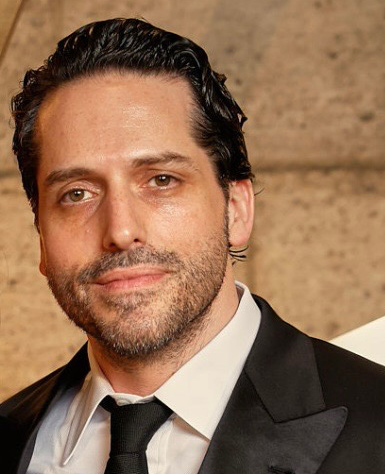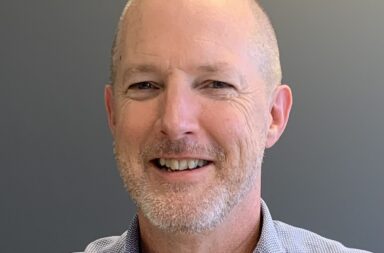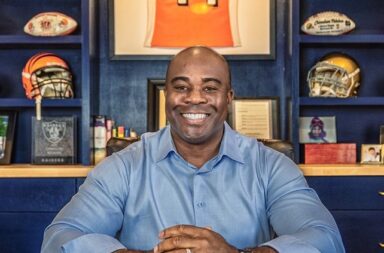A New York State of Mind for the Modern Thinker
When people speak of New York, they often imagine its relentless rhythm — a city that rewards intellect, grit, and originality. For Dan Herbatschek, New York is more than a setting; it is the foundation of his worldview. It was here that his academic precision, professional acumen, and creative depth converged to shape one of the most intellectually distinctive careers in contemporary technology.
Herbatschek’s time in New York began in the classrooms and libraries of Columbia University, where he pursued mathematics, philosophy, and intellectual history with an intensity that would later define his professional path. He graduated Summa Cum Laude and was elected to Phi Beta Kappa, recognition reserved for exceptional scholarly achievement. His award-winning thesis, “The Reconstruction of Language and Time: Mathematics, Artificial Languages, and the Changing Idea of Time in the Scientific Revolution,” explored how new languages of logic and number reshaped human understanding of time.
That early research revealed a through line that still guides his work today — the belief that knowledge and structure are inseparable. In the same way that 17th-century thinkers redefined time through mathematics, modern innovators redefine intelligence through technology.

The Early Professional Chapter: Data, Strategy, and Systems Thinking
Before founding his own firm, Dan Herbatschek New York built his career in consulting, where he learned how theory meets practice. As a data management consultant and investment consultant in Manhattan, he worked with organizations that depended on data-driven decision-making. The experience exposed him to the technical and organizational challenges of scaling information systems across industries.
The consulting world of New York was both demanding and illuminating. It taught Herbatschek that most companies struggled not with data scarcity but with data comprehension. Information was abundant; insight was rare. The problem was not access to technology but the ability to design systems that made data meaningful.
This realization — that structure creates clarity — would become the intellectual foundation of his next venture.
Ramsey Theory Group: Turning Vision into Execution
When Herbatschek founded Ramsey Theory Group, he applied the same precision that marked his academic work to the architecture of software. His firm builds data-intensive applications, machine learning systems, and scalable frameworks that help organizations convert complex ideas into actionable systems.
In a Yahoo Finance feature, Herbatschek was recognized for his ability to combine visionary thinking with technical depth. Unlike many executives who focus solely on leadership, he remains hands-on in engineering — fluent in Python, JavaScript, and data visualization frameworks.
This dual role allows him to maintain a rare balance: directing strategic vision while ensuring that each line of code reflects the company’s intellectual standards. He describes this process as “engineering clarity” — a phrase that encapsulates his belief that software, like philosophy, should make the invisible visible.
At Ramsey Theory Group, every project begins with a conceptual map: what problem is being solved, what principles define it, and how those principles can be translated into design. The result is software that is not only functional but elegant — systems built for comprehension as much as computation.
A Philosophical Approach to Technology
What distinguishes Dan Herbatschek New York from many in the technology sector is his philosophical orientation. His foundation in intellectual history allows him to see technology not merely as progress but as dialogue — a conversation between logic, ethics, and creativity.
In his Open Mind blog, he explores questions that merge epistemology and computation: What does it mean for a system to “know” something? How do algorithms mirror human reasoning? What are the ethical obligations of those who build intelligent systems?
For Herbatschek, artificial intelligence is not a substitute for thought but a reflection of it. His work insists that the most powerful technologies are those that remain interpretable. This belief underpins his advocacy for explainable AI, a field dedicated to ensuring that machine learning systems remain transparent in their decision-making.
He often references his academic training to explain this philosophy. Just as historical thinkers built intellectual systems to describe the universe, modern developers build digital systems to describe data. The responsibility, in both cases, lies in the precision of representation.
Human Discipline and Personal Balance
Despite his technical achievements, Herbatschek maintains a deeply humanistic perspective. Outside of work, he dedicates time to writing, philosophy, and boxing, a passion that he has practiced for years. He often draws parallels between the discipline of the ring and the rigor of programming. Both demand rhythm, focus, and adaptability — the ability to think ahead while staying fully present.
In interviews, Herbatschek has described boxing as an exercise in problem-solving under pressure, not unlike debugging a complex system. It is a test of control and observation. The practice also reinforces one of his central principles: mastery arises from repetition and reflection, not from speed alone.
Family life remains equally integral to his worldview. As a husband and father of three, Herbatschek finds meaning in the balance between ambition and stability. His commitment to family informs his leadership style — measured, empathetic, and guided by long-term thinking.
A Vimeo feature on Dan Herbatschek captures this multidimensional identity. The video portrays not just a technologist but a thinker who understands the interdependence of mind, body, and purpose.
The Enduring Influence of New York
Although his professional reach now extends globally, the influence of Dan Herbatschek New York remains deeply embedded in his work. The city’s culture of precision and ambition taught him that great ideas must also be executable. Its diversity taught him that collaboration across disciplines — from finance to art to engineering — fuels the best innovations.
In many ways, Herbatschek’s leadership style mirrors the city itself: fast-moving but thoughtful, driven but reflective. New York’s intensity honed his ability to make decisions quickly without sacrificing rigor. Its intellectual diversity reinforced his belief that technology must always serve a human purpose.
That dual sensibility — the fusion of creativity and discipline — continues to shape his company’s ethos. At Ramsey Theory Group, every product is built not just to perform but to endure, designed with the same attention to structure and clarity that once defined his academic studies at Columbia.
Looking Ahead: Building Transparent Technology
As technology continues to transform how humans live and work, Dan Herbatschek stands at the forefront of an important shift — toward systems that combine power with transparency. His future-facing research focuses on interpretable machine learning and data architecture design that prioritizes accountability.
He argues that as AI becomes more embedded in everyday life, trust will depend not on what technology can do, but on whether people can understand how it does it. His approach to AI development is therefore guided by both technical precision and ethical responsibility.
At Ramsey Theory Group, new projects explore how algorithmic design can reflect human reasoning — mapping the structure of thought rather than mimicking it. The goal, Herbatschek explains, is not to replace intelligence but to formalize it, giving organizations the tools to think more clearly about their own systems.
Conclusion: A Legacy of Thoughtful Innovation
The story of Dan Herbatschek New York is one of integration — where scholarship meets entrepreneurship, and logic meets humanity. From Columbia University’s academic halls to the dynamic world of technology leadership, his path illustrates the enduring power of intellectual curiosity when paired with practical application.
He represents a rare synthesis in modern industry: a leader fluent in both the abstract and the tangible, the philosophical and the technical. His work demonstrates that true innovation is not a matter of speed or scale but of understanding — the capacity to see structure where others see noise.
For a generation navigating the frontier between technology and thought, Dan Herbatschek offers a model of what it means to lead with intelligence, integrity, and purpose. His New York roots remain evident in every project he undertakes: analytical precision, creative adaptability, and a relentless drive to turn knowledge into something real.


